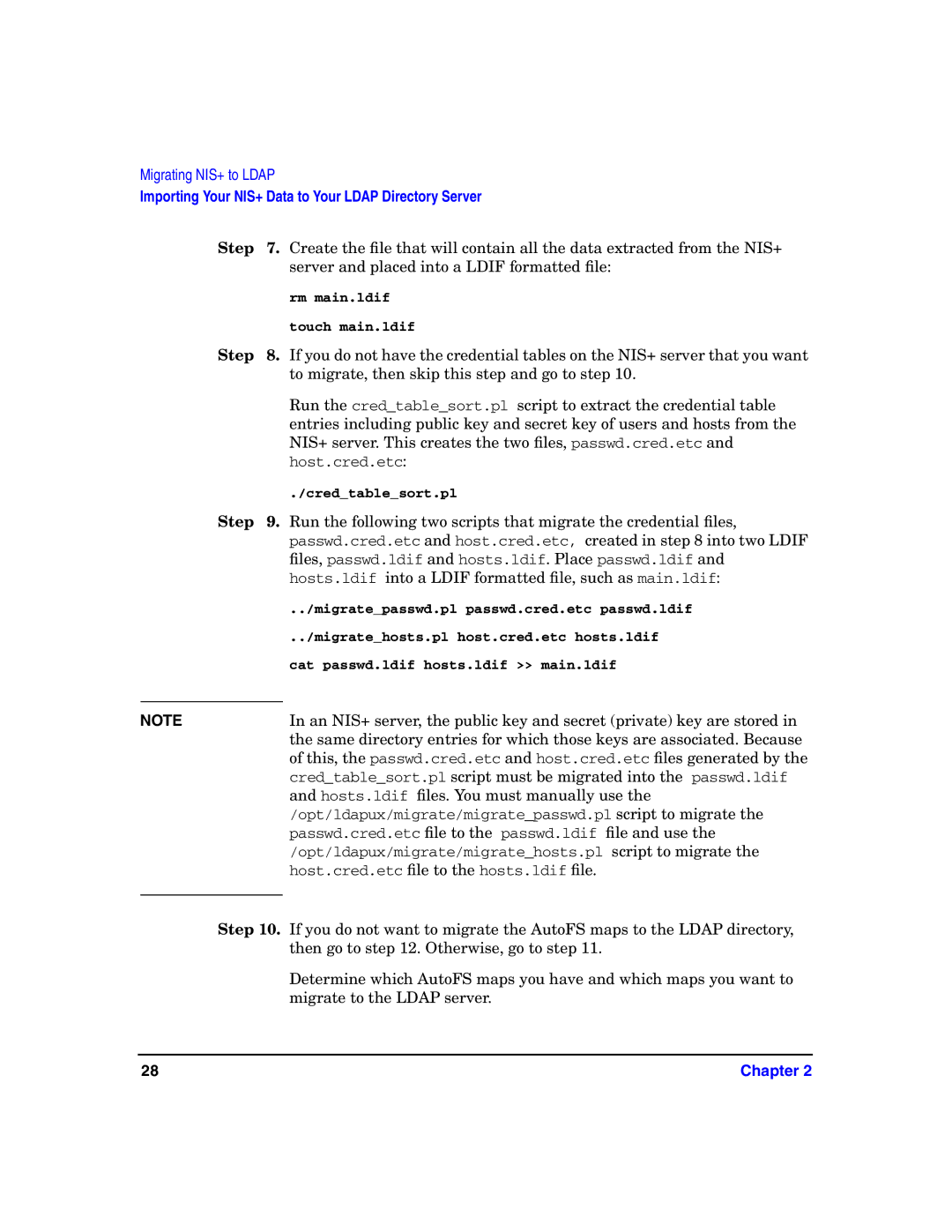Migrating NIS+ to LDAP
Importing Your NIS+ Data to Your LDAP Directory Server
Step | 7. | Create the file that will contain all the data extracted from the NIS+ |
|
| server and placed into a LDIF formatted file: |
|
| rm main.ldif |
|
| touch main.ldif |
Step | 8. If you do not have the credential tables on the NIS+ server that you want | |
|
| to migrate, then skip this step and go to step 10. |
|
| Run the cred_table_sort.pl script to extract the credential table |
|
| entries including public key and secret key of users and hosts from the |
|
| NIS+ server. This creates the two files, passwd.cred.etc and |
|
| host.cred.etc: |
|
| ./cred_table_sort.pl |
Step | 9. | Run the following two scripts that migrate the credential files, |
|
| passwd.cred.etc and host.cred.etc, created in step 8 into two LDIF |
|
| files, passwd.ldif and hosts.ldif. Place passwd.ldif and |
|
| hosts.ldif into a LDIF formatted file, such as main.ldif: |
|
| ../migrate_passwd.pl passwd.cred.etc passwd.ldif |
|
| ../migrate_hosts.pl host.cred.etc hosts.ldif |
|
| cat passwd.ldif hosts.ldif >> main.ldif |
|
|
|
NOTE |
| In an NIS+ server, the public key and secret (private) key are stored in |
|
| the same directory entries for which those keys are associated. Because |
|
| of this, the passwd.cred.etc and host.cred.etc files generated by the |
|
| cred_table_sort.pl script must be migrated into the passwd.ldif |
|
| and hosts.ldif files. You must manually use the |
|
| /opt/ldapux/migrate/migrate_passwd.pl script to migrate the |
|
| passwd.cred.etc file to the passwd.ldif file and use the |
|
| /opt/ldapux/migrate/migrate_hosts.pl script to migrate the |
|
| host.cred.etc file to the hosts.ldif file. |
|
|
|
Step 10. If you do not want to migrate the AutoFS maps to the LDAP directory, then go to step 12. Otherwise, go to step 11.
Determine which AutoFS maps you have and which maps you want to migrate to the LDAP server.
28 | Chapter 2 |
